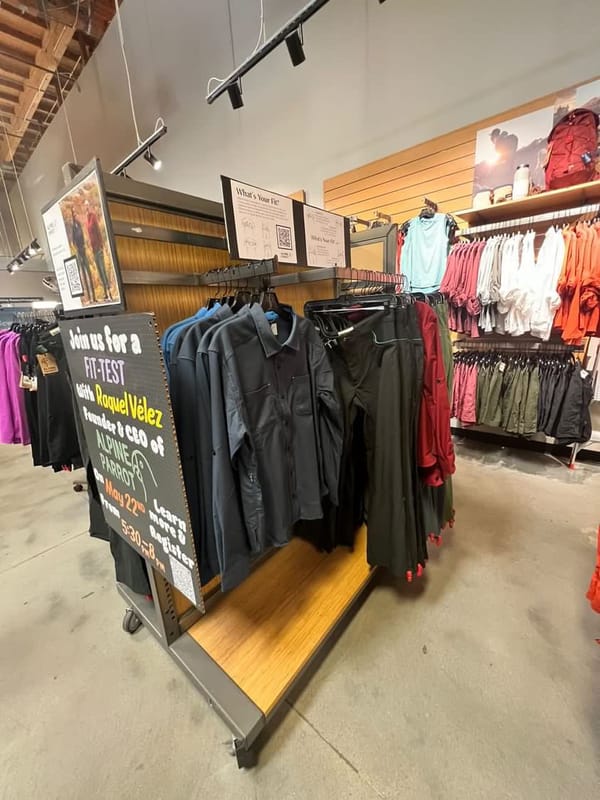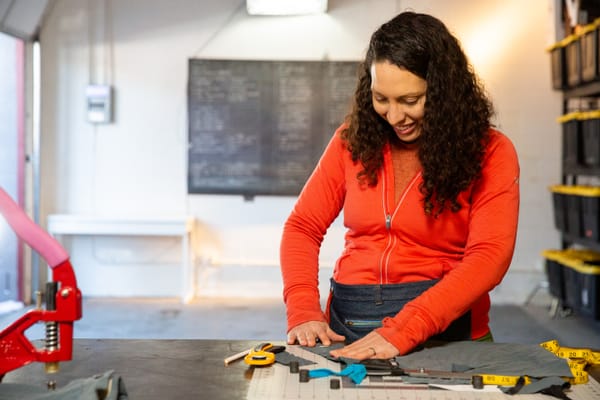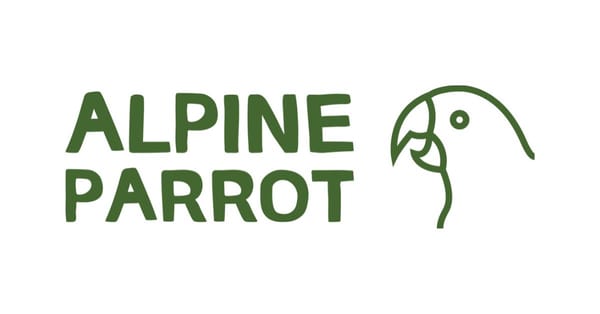The Geek Guide to Traveling
Growth in a technical field not only means doing more technical stuff, it also means more traveling: speaking, attending conferences, meeting with clients, etc.
The following are my tips and tricks for efficient and effective flying*:
Packing
- The only time I'll pack a suitcase (i.e. the sort that you'd check under the plane) is if I'm moving out of state (and flying to get there). Checking a bag means baggage fees as well as longer lines both upon departure and arrival. Paying + waiting !== efficient + effective
- If a trip is 2 weeks long or less, I definitely don't take anything more than a small duffle/carry-on case, which will fit in the overhead compartment and a bag for under the seat in front of me.
- No one cares if the outfit you fly in with is the same as the outfit you fly out with.
- Similarly, observe these formulas:
- var N = number of days you'll be out
- Pieces of underwear = N + 2. (You never know; things happen.)
- Number of shirts = (N + 2) / 2
- Number of jeans/shorts = N / 2
- Number of suits <= 2
- Keep all of your toiletries to the 1-quart zip baggie. Either get all of your liquids down to 3oz containers or (if you're going somewhere with drug stores, etc.) buy what you need when you arrive and leave it or toss it before you return. Of course, if you're checking bags, you can check your liquids - but I still recommend storing them in zip bags, as liquids can explode under cabin pressure.
- If you're packing makeup: use powdered makeup and bring makeup cleansing towelettes. They don't count towards your 1-quart baggie.
- Pack a travel towel (often found in camping stores) unless you know, for a fact, that you will have a towel upon arrival (i.e. if you're staying at a (m/h)otel). If you're staying at a hostel or at a friend's house, there's a chance that a towel will either not be provided for you or, if you should end up in Europe, might be smaller than you expect. I love my travel towel - it folds up pretty small, is super soft, and does its job really well!
- Make a list of everything you plan to bring. If you're a procrastinator (like me), it's a lot easier to make sure you have what you need before your trip when referring to your list at 3:30 AM as you prepare for your 6AM flight.
Flying
- Use a fare forecaster like the service formerly known as Farecast (now called bing.com/travel) to get a good idea of when to buy your tickets.
- Always buy your tickets directly from the airline - you won't pay any fees, and you won't have to worry about going through the 3rd party service if something should happen while you're traveling. (Believe me, when you're at the airport, trying to reschedule a cancelled flight, you do NOT want to spend your precious time trying to get a hold of a customer service representative in India. It's a LOT easier to speak with the attendants who are in the airport with you!)
- Early morning flights (ideally, the first flight out for the day) have the lowest chance of being delayed.
- Since you're not checking bags, make sure you check in before you leave for the airport. Better yet: check in the day before. If you do need to check bags, save yourself some money and pay the baggage fees online.
- If you can, get your ticket sent to your phone - not only is it way cool, but I hardly know how to use a printer anymore**. Plus my phone is always with me.
- While you're in the security line, take your belt off and untie your shoes. Place everything that's in your pockets into one of your carry-ons. After going through security, grab all your stuff and head to the nearest bench. You will spend less time fumbling and more time wondering why everyone else in line isn't as efficient as you.
- Unless you're a camel, go to the bathroom before you board the plane. (Of course, this is assuming you have time to do so.)
- If a plane is experiencing mechanical issues and you've been delayed for more than an hour, get onto a different plane. It won't be leaving, especially if it's after 6 pm.
- When preparing to board the plane, listen for your boarding number. Get into line when the number before yours has been called, and then sneak in as the section ahead of you starts to trickle down.
- The trick to boarding is to get onto the plane as soon as you can, so that you can get an overhead compartment for your bag before they all get filled up. If there is no room left in the overhead compartments, you will be forced to check your carry-on.
- Note that airplane cabins are kept at a relatively cool temperature - if you get cold easily, bring a sweater (and socks, if you decide to wear sandals onboard)!
Accommodations
- By far the best option is to stay with someone you know, preferably for free.
- Otherwise, stay at the most reasonably priced place you can, keeping in mind the location, actual price per night, quality of hotel/hostel/bed and breakfast/etc., and your budget. Sometimes it's worth shelling out a bit more per night if it means you don't have to spend an extra hour on the train to get from the hotel to your conference.
- If you're staying at a hostel, be sure to bring your own padlock. Most hostels provide lockers, but they don't always include actual locks.
- If you have the opportunity to include breakfast, be sensible and check how much more per day you'll be spending on the so-called breakfast. Powdered eggs and waffles are not worth $20!
That's all I have for now - what are your tips and tricks for effective and efficient travel? I would love to hear about them in the comments!
* With over 100 flights and a degree in engineering under my belt, I'm just going to consider myself qualified ;-)
** This actually isn't even remotely true. But my dependency on paper has decreased dramatically since 2010.



